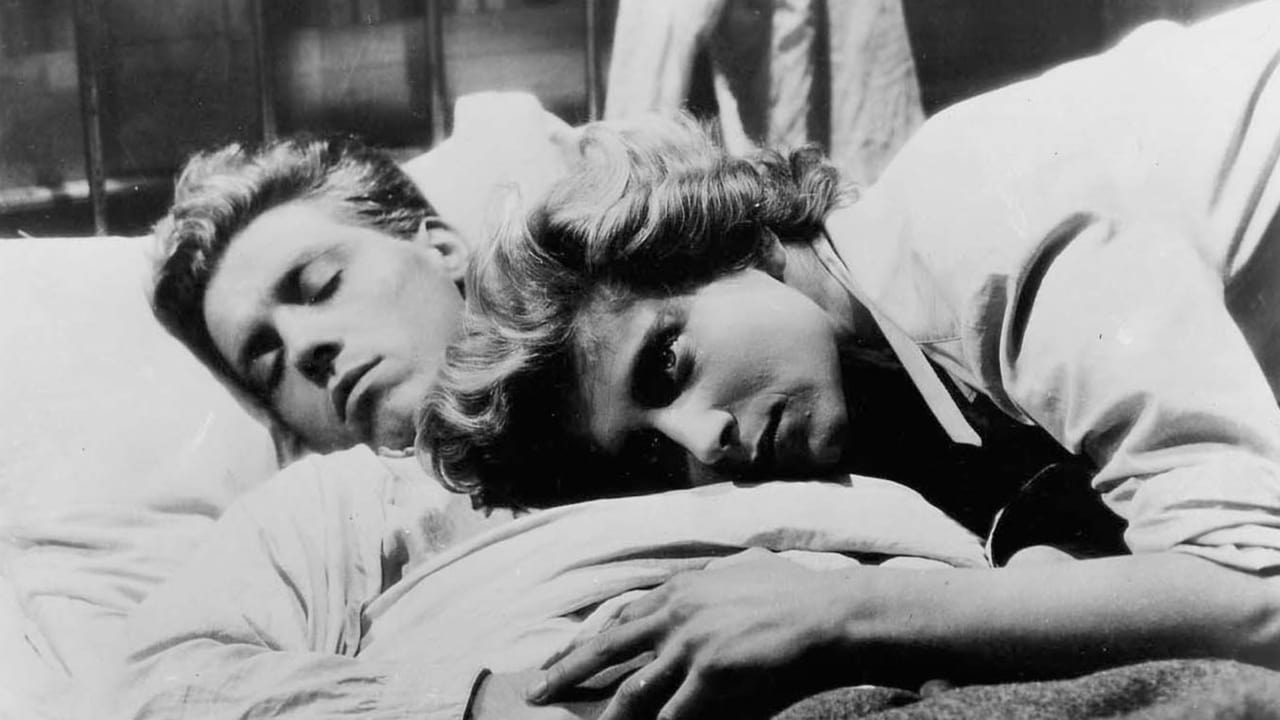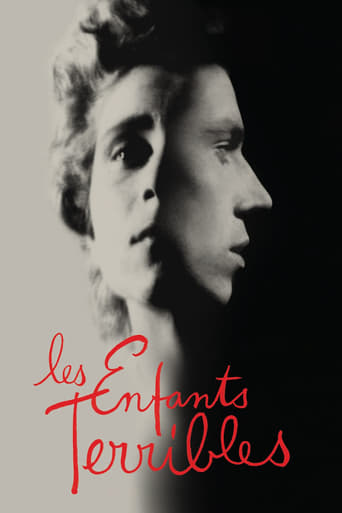

You know what you're getting with Cocteau - 1920's transgender shenanigans with a hint of incest thrown in - and with Melville you get an almost literally 'classic' director; it's all about capturing the performance as though on stage, the camera as transparent medium, not as unreliable narrator.Whether 'LET' makes sense to you or not, once the initial slightly slow sequence where there's an unconvincing snowball fight is over, it's a fascinating exercise in suggestive scripting, spooky acting and sumptuous set-dressing. Enjoy it as a period piece; if you glean a few bits of trivia from IMDb you'll enjoy it all the more.
... View MoreThis film, technically and aesthetically stunning, is certainly successful in establishing a mood that is pervasive throughout the entire work. I imagine that Melville must have been pleased with the finished product but I do wonder how Cocteau felt about it.My curiosity stems from the fact that the images of the written work were always successfully employed by the imagination to increasingly sinister effect. The siblings were basically two parts of the same being and their histrionics as well as their torture of each other felt as natural and unremarkable as a self-deprecatory comment made to oneself about some minor mistake. This histrionic nonchalance was missing from the movie. Watching the characters harass and chase each other around was a two dimensional representation of a dynamic that would, i think, have been far more successfully established by relying less upon running and screaming. Their games had an emotionally taxing impact upon those in their presence and this wasn't established too well either. Ultimately, I guess that most of these observations can be attributed to actor/observer effect, the difference between being a part of a story, as in a well written book, and watching a scene. I just found the characters to be somewhat laughable at times in the film and I imagine that had I've not read the book, the ending may have seemed excessive and self-indulgent.I genuinely think that the creative realization of this work paid too much attention to the aesthetics/mood of place and not nearly enough to aesthetics/mood of dynamic. What results is a well-acted, aesthetically pleasing, character study of a few individuals that never really feel real. Melville is often guilty of this but for his subject matter, which is typically more plot driven, it works. The hustlers and lowlifes of the pulp era noir flicks aren't supposed to be accessible. Those films unfold like clockwork scenes performed by little tin wind-up thugs-- and its perfect, don't get me wrong. But the power of the 'two sides of the same coin', co-dependent siblings fable is the pervasive sense of dread that one feels as the dynamic starts to unravel; this is absent from this film. Nonetheless, I give this film seven stars for being a provocative work by two artists for whom I have a great deal of respect.'Dead Ringers' is an example of the same fable that I thought was remarkably well realized. Of course it's nowhere near as good a movie from a technical standpoint.
... View MoreThis movie inspired the 1990's movie classic Problem Child 2. However, the production of this earlier clone is far weaker. The cinematography is not a patch on Problem Child 2. The performances are variable. Some average, some awful. The problem with this movie is that it wants to be an outright comedy but refuses to admit it. At times you can sense that the director was longing to put a banana skin in the path of its main character. The scene with the terrible child. That could have been far superior if the child had thrown a bucket of custard over the adult and ran off. There are too many scenes in which the main characters do not do anything remotely hilarious. Missed opportunities are the achilles heel of this movie.
... View MoreI saw this twice in a single day. And couldn't stop watching this after. Each time I start watching a Hollywood movie I can't help but surrender back to this surrealist nutjob where nothing is really definable.Much of the literature I've read on this focus on the unlikely collaboration between Jean Cocteau and Jean-Pierre Melville, with most putting it in context of Cocteau's other films. But I've always thought that Cocteau's Orphée, made during the same period, feels static and leaden amidst the classical style of its 50's direction. Les Enfants Terribles, while retaining a very classical premise, is completely revolutionary, resembling the unruly romanticism of Rimbaud's poetry. Nothing in the film stays the same - everything is constantly shifting; dyamics are constantly changing; even the sets change in subtle ways. Everything is made purposefully ambiguous and ambivalent such that paradoxes and contradictions abound in a single emotion. But ultimately, as all great Melvillian films are, the film is about the futility of humanity in the face of life and death.I could go on and on about this movie; Melville is truly one of the great poets of cinema.
... View More